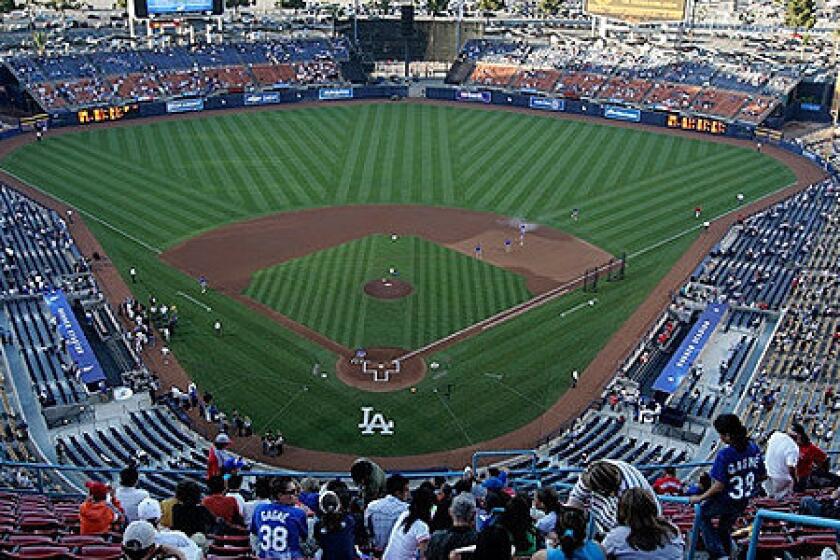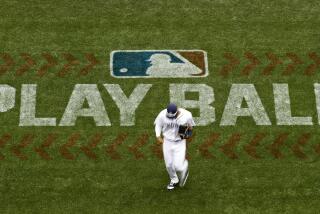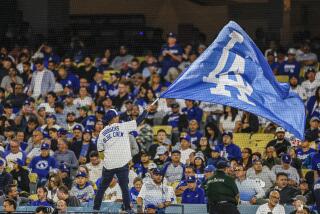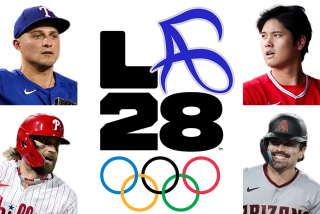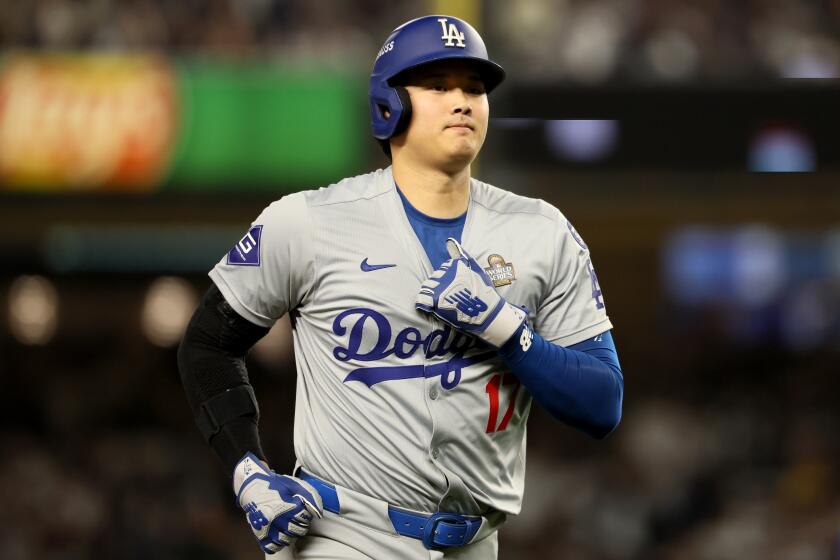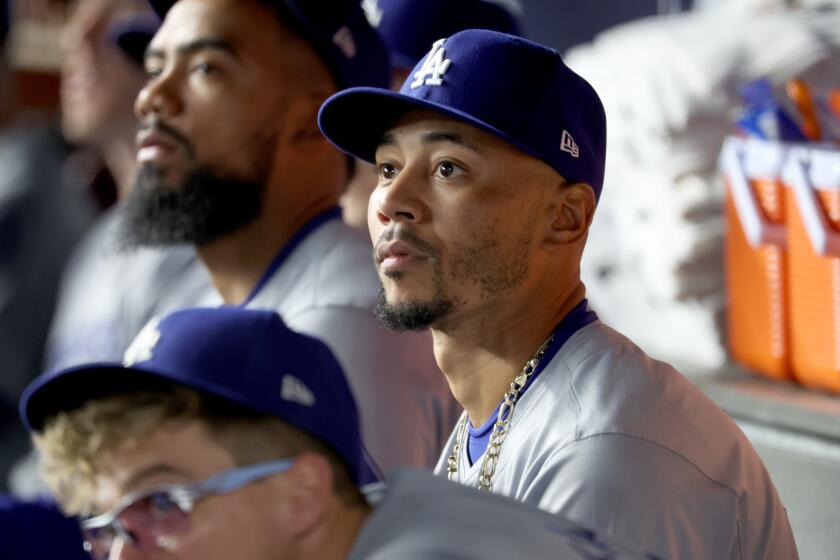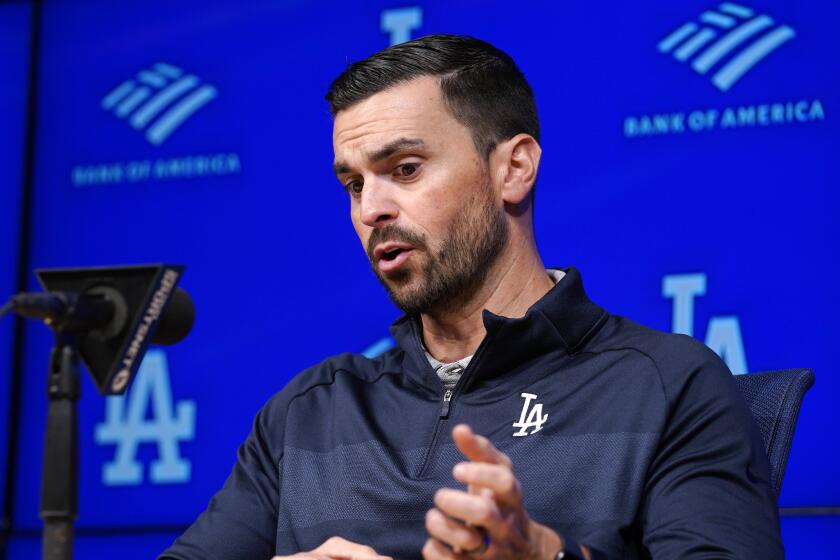Opening day on July 4 could have been something special. Too bad MLB blew it
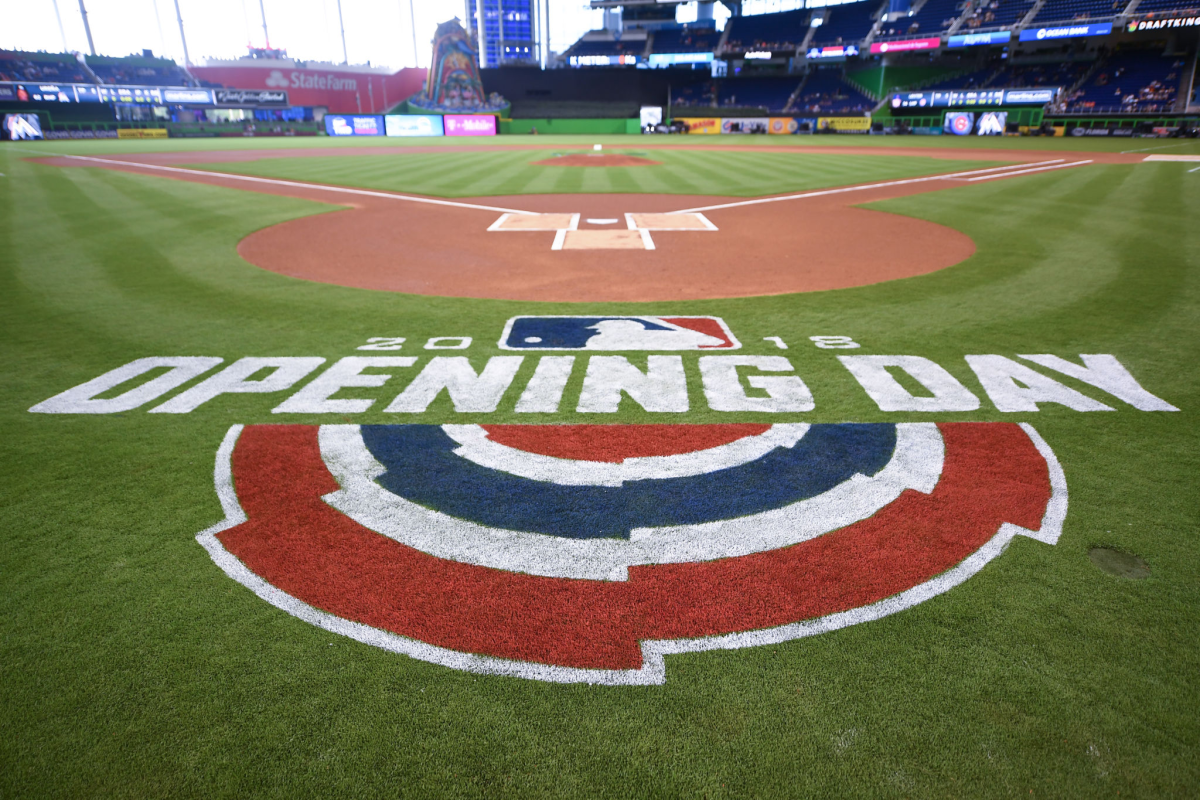
If only baseball had gotten its act together this spring, it could have staged a grand reopening act this summer, a kickoff to a pandemic-shortened season for America’s pastime on the most American of holidays — the Fourth of July.
“Oh, you mean baseball, hot dogs, apple pie and Chevrolet?” sports business consultant Andy Dolich, 73, said, recalling the television advertising jingle that first aired in 1975. “Fireworks, families and communities coming together for a celebration … who’d be interested in that?”
The sarcasm in Dolich’s voice was as clear as his message: Major League Baseball missed a golden — actually, a red-white-and-blue — marketing opportunity by failing to launch its season July 4.
Sure, there would have been less pomp under the circumstances. With stadiums empty, there would be no need for the unfurling of giant American flags, military flyovers and extravagant postgame fireworks shows.
But if owners and players hadn’t spent three months haggling over money, a dispute that pushed what is now a scheduled 60-game season to July 23, baseball could have had the domestic sports stage to itself for weeks, returning well before the NBA and NHL.
The USPBL, focusing on biomechanics and coaching, sets out to groom overlooked MLB prospects.
And MLB could have produced a Fourth of July extravaganza, airing multiple season openers throughout the day to a country craving live sporting events and a distraction from the coronavirus.
Fans couldn’t attend games, but gathering around the television to watch stars such as Mike Trout, Cody Bellinger and Gerrit Cole might have fostered a sense of normalcy and community amid the swirling political, racial and viral tensions that have turned the U.S. into the Divided States of America.
“With the damage we have from a pandemic and the injury to the moral soul of our country, I don’t think any sport can be that warm arm around a fan’s shoulder,” said Dolich, who spent five decades in professional sports and held executive positions in the NFL, NBA, NHL and MLB. “But can it help? Yes.
“Whether it was the [Bay Area] earthquake in 1989, the Sept. 11 attacks or Hurricane Katrina, what baseball did in those circumstances was to come in post-trauma and provide some sort of upside for the community.”
Dolich, who spent 14 years in the front office of the Oakland Athletics, said he believes baseball eventually can be part of a healing process, but the patriotic Fourth of July holiday would have been a perfect place to start.
“Could it have been different and just as special even without fans? The answer is an unqualified yes,” Dolich said. “Sports at its strongest is storytelling. I would have used the power of the broadcast.”
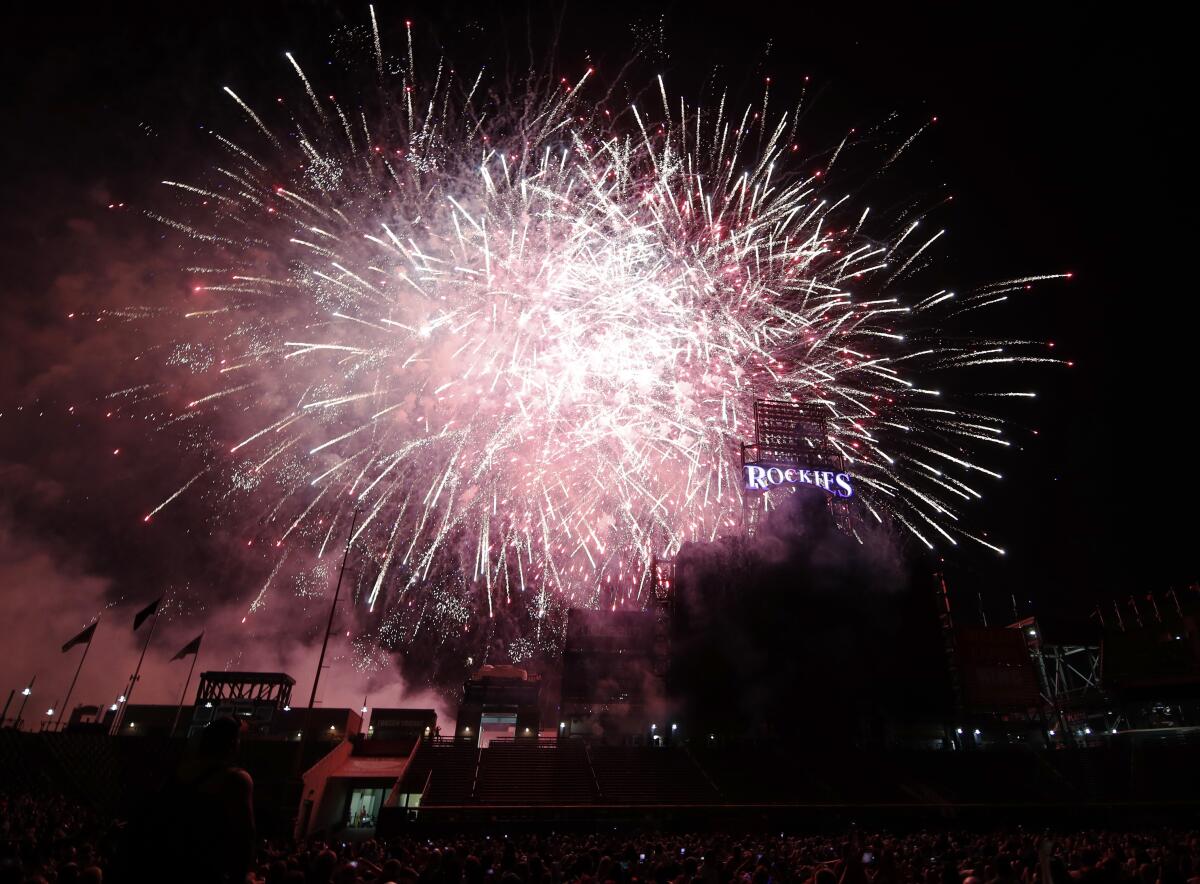
Dolich would have started with the Negro Leagues’ 100th anniversary celebration, sprinkling game telecasts with tributes to baseball’s Black pioneers.
“In the tenor of today’s world and with so many young people not necessarily having institutional knowledge, do they really know Jackie Robinson’s story, do they know Larry Doby’s story, do they know the story of Satchel Paige and the Negro Leagues?” Dolich said.
“Put fireworks aside. Let’s think about education, about celebrating individuals like Hank Aaron and Willie Mays and so many other incredible people who have gone through the struggle and who were really pathfinders.”
Dolich suggested pre-recorded clips of star players speaking directly to viewers — the more personalized, the better — as a way to humanize them and build bonds with fans.
“I want to hear that even though they may be making X dollars a year, they care about me, the fan,” Dolich said. “When have we heard that in the last few months?
“I want to hear them say, ‘I’m gonna miss you not being in the stands. I’m this superstar, and I know that Susie in Encinitas is a big fan of mine, and she’s going through some really tough times, so I’m signing this ball for you and sending it to you right now.’ Then you put a smile on someone’s face.”
Dolich also would do something to attract younger fans, especially those who have had organized baseball and softball seasons canceled by the pandemic.
The Dodgers and Angels should start games earlier this season because fans don’t need to rush to the ballpark after work. They just need to turn on the TV.
“There are going to be lot of baseballs going out of play,” Dolich said. “Clean them up, have every star autograph them and have some kind of contest where kids get a ball. ‘Wow, I just got a ball from Mike Trout, from Marcus Semien,’ and so on. Why not? It’s easy.”
In May, major league owners proposed a 2020 season of about 82 games — roughly half of a normal 162-game season — starting in early July. They refused to include full prorated pay for players, however, a sticking point that dragged contentious negotiations into late June and pushed the season to late July.
“If you look back at 1981, when we had a strike and a split-season, and 1995, when the season was delayed by a strike, even though there was in interruption, those weren’t looked at as flawed seasons,” said Fred Claire, the Dodgers general manager from 1987-98. “You can cut it any way you want to, but you can’t make a 60-game schedule out to be a legitimate season.”
An 82-game season wasmore palatable, and would have given MLB the chance to capitalize on a July 4 opening day, a missed opportunity Dolich likened to a self-inflicted wound.
“If I went out and said I’m gonna hire the most incompetent public relations consultant I can, and that person’s advice was to talk about money in the midst of a horrific viral pandemic and with the social fabric of the country being ripped apart … I mean, talk about tone-deaf,” Dolich said.
“Oh, and there’s 40 million people out of work? And we’re talking about millionaires and billionaires arguing about percentages of millions of dollars? It’s the worst optics you could create.”
More to Read
Are you a true-blue fan?
Get our Dodgers Dugout newsletter for insights, news and much more.
You may occasionally receive promotional content from the Los Angeles Times.

